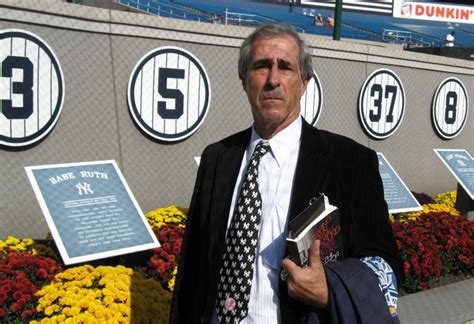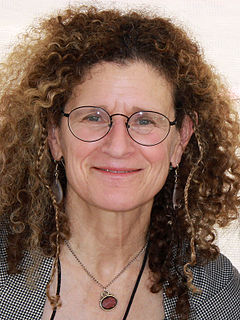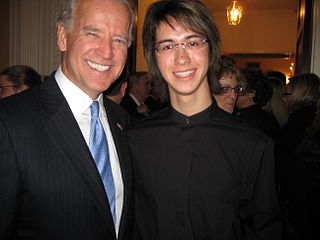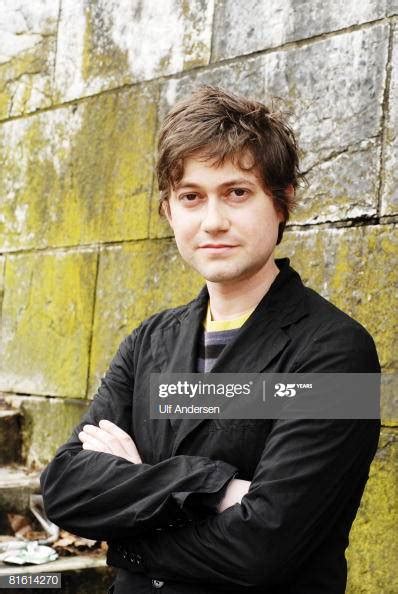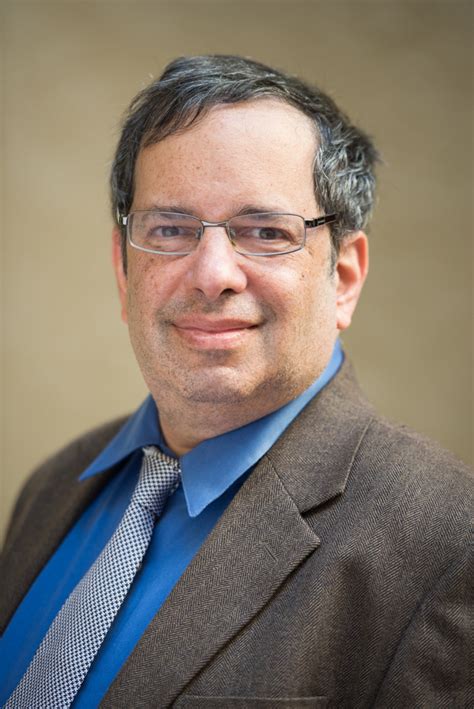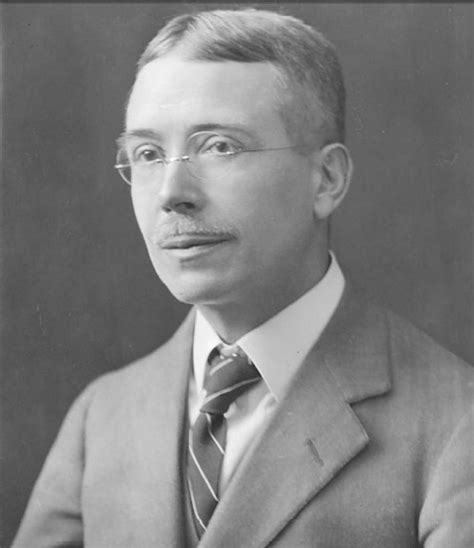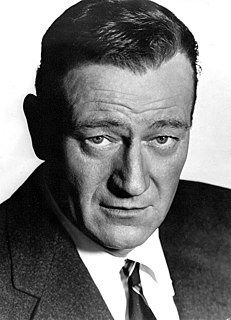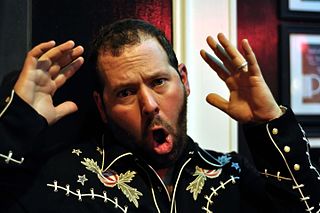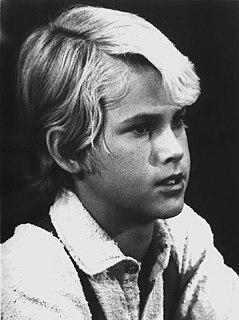Top 985 Prose Quotes & Sayings - Page 15
Explore popular Prose quotes.
Last updated on April 19, 2025.
Merrie Destefano storms the world of urban fantasy with AFTERLIFE, breathing new life into the vast genre of the undead. Gritty, poignant, in the tradition of Bladerunner, with the nostalgia of New Orleans. With crisp and beautiful prose, AFTERLIFE blurs the line between the living and the dead to ask life's ultimate questions-even if they take nine lives to solve.
We are herding the young in that direction so that they are not sitting still and contemplating, Goddamn it, a page of exquisite prose by Charles Dickens, which is filled with rage about poverty and the need of a household to survive. That's not in the table for consideration now. And people don't understand that beautiful rage of Dickens because they don't share it. They haven't got time to worry about an oppressed culture, a subclass.
I was influenced by autobiographical writers like Henry Miller, and I had actually done some autobiographical prose. But I just thought that comics were like virgin territory. There was so much to be done. It excited me. I couldn't draw very well. I could write scripts and storyboard style using stick figures and balloons and captions.
When you realize my best selling books are 'Owl Moon,' the 'How Do Dinosaur' books, and 'Devil's Arithmetic,' how can the public make sense of that! I have fans who think I only write picture books or only write SF and fantasy. I have fanatics of my poetry and are stunned to find out I write prose, too!
One of the interesting things about the history of poetry in the 16th, 17th, and 18th centuries is that people who read liked getting their information in rhyme just as much as in prose. The genre that we would think of as nonfiction often was written in verse in forms like the Georgic when people thought that one of the tasks of poetry was conveying arguments and information in a pleasant way.
Writing for the page is only one form of writing for the eye. Wherever solemn inscriptions are put up in public places, there is a sense that the site and the occasion demand a form of writing which goes beyond plain informative prose. Each word is so valued that the letters forming it are seen as objects of solemn beauty.
Except by name, Jean Paul Friedrich Richter is little known out of Germany. The only thing connected with him, we think, that has reached this country is his saying,-imported by Madame de Staël, and thankfully pocketed by most newspaper critics,-"Providence has given to the French the empire of the land; to the English that of the sea; to the Germans that of-the air!" Richter: German humorist & prose writer.
Voice is the je ne sais quoi of spirited writing. It separates brochures and brilliance, memo and memoir, a ship's log and The Old Man and the Sea. The best writers stamp prose with their own distinctive personality; their timbre and tone are as recognizable as their voices on the phone. To cultivate voice, you must listen for the music of language-the vernacular, the syntactic tics, the cadences.
I really - I don't take my work that seriously, and I think that's what keeps me loose. If I try to write, if I catch myself trying to write, I'll fall right on my face. I'll see it. If I see in the prose that I'm - 'Boy, look at me writing,' I rewrite it. I rewrite it because I don't, because I think it's distracting.
Michael Bohn provides a rare opportunity to experience the American sporting scene in the Roaring Twenties. A constant stream of legendary characters marches across these pages. You’ll meet them all: The Babe, The Four Horsemen, The Manassa Manassas Mauler, The Wheaton Iceman, Bill Tilden, Gertrude Ederle, and Grantland Rice, the sportswriter whose purple prose made them all come alive.
Fischer was a good kid but very unsophisticated about anything but chess. It was all chess for him, every waking moment. We'd go down to the Four Continents bookstore and he'd buy any Russian chess material he could get his hands on. He'd learned enough Russian to get the gist of prose and he just absorbed the chess part.
Of little use, the man you may suppose,
Who says in verse what others say in prose;
Yet let me show a poet's of some weight,
And (though no soldier) useful to the state,
What will a child learn sooner than a song?
What better teach a foreigner the tongue?
What's long or short, each accent where to place
And speak in public with some sort of grace?
Even in a crowded field, it is a rare pleasure to come across a prose stylist like Kellie Wells, whose intellect and language bid one another beautifully to a dance. She dares to be at play in the most unsettling questions of her day. Surely when the present generation of writers shakes down to its unique and irreplaceable voices, Kellie Wells will be one of them.
Everything in art depends on execution: the story of a louse can be as beautiful as the story of Alexander. You must write according to your feelings, be sure those feelings are true, and let everything else go hang. When a line is good it ceases to belong to any school. A line of prose must be as immutable as a line of poetry.
I think the underlying purpose is expression. It's not about technique, it's not about hitting the right note, writing the perfect prose, having the perfect brushstroke. It's about expression of oneself, the things around you, and the emotions. I think expression is the one word that I would use, whether it's for sorrow, tragedy, joy, or even the need to express and be heard.
I'm being explicit about really horrifying experiences in my life, but my hope has always been to be responsible as an artist and to avoid indulging in my misery, or to come off as an exhibitionist. I don't want to make the listener complicit in my vulnerable prose poem of depression, I just want to honor the experience. I'm not the victim here, and I'm not seeking other peoples' sympathy. I don't blame my parents, they did the best they could.
The word 'creative' refers simply to the use of literary craft in presenting nonfiction—that is, factually accurate prose about real people and events—in a compelling, vivid manner. To put it another way, creative nonfiction writers do not make things up; they make ideas and information that already exist more interesting and, often, more accessible.
to look back on one's life is to experience the capriciousness of memory. ... the past is not static. It can be relived only in memory, and memory is a device for forgetting as well as remembering. It, too, is not immutable. It rediscovers, reinvents, reorganizes. Like a passage of prose it can be revised and repunctuated. To that extent, every autobiography is a work of fiction and every work of fiction an autobiography.
Krzhizhanovsky wanted to perform imaginary experiments with the nature of time and space. Outside, in the streets, the Communist state was busy performing such experiments for real. In response, Krzhizhanovsky's prose has a recklessly unstable tone in which delighted examination of impossible worlds can slip into ferocious political sarcasm.... It is a method for investigating how much unreality reality can bear.
Who dreamt and made incarnate gaps in Time & Space through images juxtaposed, and trapped the archangel of the soul between 2 visual images and joined the elemental verbs and set the noun and dash of consciousness together jumping with sensation of Pater Omnipotens Aeterna Deus to recreate the syntax and measure of poor human prose and stand before you speechless and intelligent and shaking with shame
We must never underestimate our power to be wrong when talking about God, when thinking about God, when imagining God, whether in prose or in poetry. A generous orthodoxy, in contrast to the tense, narrow, or controlling orthodoxies of so much of Christian history, doesn't take itself too seriously. It is humble. It doesn't claim too much. It admits it walks with a limp.
It's fashionable to use terms like 'sales funnels' to describe the sales process for many companies, and it is true that the funnel design is very appropriate for the digital world, but despite all the prose written on sales funnels and the like, my question is still the same - when do you close your sales, and how long does that take?
All great questions must be raised by great voices, and the greatest voice is the voice of the people - speaking out - in prose, or painting or poetry or music; speaking out - in homes and halls, streets and farms, courts and cafes - let that voice speak and the stillness you hear will be the gratitude of mankind.
External realities - worlds of politics, economics, law, war, interpersonal and social relations - are part of prose fiction. Fiction also includes the realities of a character's interior language. Poetry can encompass the same realities, but in compressed, intensified language, which creates entirely different degrees of emotional force.
When writers make us shake our heads with the exactness of their prose and their truths, and even make us laugh about ourselves or life, our buoyancy is restored. We are given a shot at dancing with, or at least clapping along with, the absurdity of life, instead of being squashed by it over and over again.
Comedy is like fictional charm. It's the charm of fiction. Or the charisma of fiction. When you meet somebody who's immediately charismatic, you're attracted to that person. And in fiction it's got to come out in either one of two ways: in the prose itself, and you're hooked immediately because you never want to leave such a colorful and penetrating world. Or, it's simply being a funny writer.
The Hours is in fact a lovely triumph. Cunningham honors both Mrs. Dalloway and its creator with unerring sensitivity, thanks to his modesty of intention and his sovereignly affecting prose.... With his elliptical evocation of Mrs. Dalloway, he has managed to pay great but quiet tribute -- reminding us of the gorgeous, ferocious beauty of what endures.
All Art is a gift of the Holy Spirit. When this light shines through the mind of a musician, it manifests itself in beautiful harmonies. Again, shining through the mind of a poet, it is seen in fine poetry and poetic prose. When the Light of the Sun of Truth inspires the mind of a painter, he produces marvellous pictures. These gifts are fulfilling their highest purpose, when showing forth the praise of God.
Self-publishing in comics is core to the whole artform. There is no scarlet letter in comics as there still is, to some degree, in prose. As no publisher for a long time would publish serious work in comics, the only way a lot of it came out was because of self-publishing. Many of the greatest works of the medium are self-published.
I always like to break out and address the audience. In 'The History Boys', for instance, without any ado, the boys will suddenly turn and talk to the audience and then go back into the action. I find it more adventurous doing it in prose than on the stage, but I like being able to make the reader suddenly sit up.
What did Nabokov and Joyce have in common, apart from the poor teeth and the great prose? Exile, and decades of near pauperism. A compulsive tendency to overtip. An uxoriousness that their wives deservedly inspired. More than that, they both lived their lives 'beautifully'--not in any Jamesian sense (where, besides, ferocious solvency would have been a prerequisite), but in the droll fortitude of their perseverance. They got the work done, with style.
You write differently in each book. It may appear to be similar to readers, but you're a different writer in each book because you haven't approached that subject before. And every subject brings out a different prose strain in you. Fundamentally, yes, you're contained as one writer. But you have various voices. Like a good actor.
Instead of creating aesthetically pleasing prose, you have to dig into a product or service, uncover the reasons why consumers would want to buy the product, and present those sales arguments in copy that is read, understood, and reacted to—copy that makes the arguments so convincingly the customer can’t help but want to buy the product being advertised.
There [DreamTigers by Jorge Luis Borges] were these little fablesque things, you know, dream tigers, beautiful, beautiful pieces that when you read them had the power of a long piece, but they were prose, and they had the power of poetry, in that the last line wasn't the end, it was a reverberation, like when you tap on a glass made of crystal, and it goes ping.
Writing for publication is an art, a craft, and a business, so you need to develop skill sets in multiple areas. You need to learn how to be a marketer just as much as you need to get past your influences and develop your unique prose voice. And you can't do it alone. You need a strong emotional support system to help cope with the frustrations and setbacks.
In all my work, in the movies I write, the lyrics, the poetry, the prose, the essays, I am saying that we may encounter many defeats - maybe it's imperative that we encounter the defeats - but we are much stronger than we appear to be and maybe much better than we allow ourselves to be. Human beings are more alike than unalike.
...the best figurative poetry speaks not to the frivolous intellect, but (if anything does) straight to the heart; and does it better than plain prose. There seems then to be something which is better said with metaphor than without, which goes straighter to its mark by going crooked, and hits its aim exactly by flying off at tangents.
In Madame Bovary Flaubert never allows anything to go on too long; he can suggest years of boredom in a paragraph, capture the essence of a character in a single conversational exchange, or show us the gulf between his soulful heroine and her dull-witted husband in a sentence (and one that, moreover, presages all Emma's later experience of men). (...) This is one of the summits of prose art, and not to know such a masterpiece is to live a diminished life.
[Science fiction is] that class of prose narrative treating of a situation that could not arise in the world we know, but which is hypothesised on the basis of some innovation in science or technology, or pseudo-science or pseudo-technology, whether human or extra-terrestrial in origin. It is distinguished from pure fantasy by its need to achieve verisimilitude and win the 'willing suspension of disbelief' through scientific plausibility.
Rather, very, little, pretty - these are the leeches that infest the pond of prose, sucking the blood of words. The constant use of the adjective little (except to indicate size) is particularly debilitating; we should all try to do a little better, we should all be very watchful of this rule, for it is a rather important one, and we are pretty sure to violate it now and then.
I think readers are always patient. Look at the 'Harry Potter' series. Some have given up on this generation of kids as game and TV addicts, but lots of people spend lots of time patiently reading through hundreds of pages of dense prose. I think reading a comic by comparison is a lot more immediate.
The 250-page outline for American Tabloid. The books are so dense. They're so complex, you cannot write like I write off the top of your head. It's the combination of that meticulousness and the power of the prose and, I think, the depth of the characterizations and the risks that I've taken with language that give the books their clout. And that's where I get pissed off at a lot of my younger readers.
Words in prose ought to express the intended meaning; if they attract attention to themselves, it is a fault; in the very best styles you read page after page without noticing the medium. Works of imagination should be written in very plain language; the more purely imaginative they are, the more necessary it is to be plain.
In his scintillating new novel, Matt Bondurant explores a crucial period in the history of Virginia and of his family. His gorgeous, precise prose brings to life an amazing cast of characters, including Sherwood Anderson, and the often deadly battles of Prohibition. The Wettest County in the World is a remarkably compelling, highly intelligent, and deeply moving novel.
I think of my success as a kind of fluke. How else could I possibly think of it? And although it's a banal thing to say, I wrote my book because I was writing my book. At first I didn't know I was writing it, and one of the amazing things that happened as I was putting sentences down on paper is that some of the things that are most sacred and important to me rose to the surface of the prose.
I think I was also afraid of the novel. I write line by line, proceeding at snail's pace, rewriting as I go and paring the excess away. This is against all the best advice for writing long form prose, and I have tried over the years to break myself of the habit, but I can't bear to leave anything ungainly on the page and half the fun for me is that tinkering. So the length of a novel was a daunting prospect.
I'm a poetry-skipper myself. I don't like to boast, but I have probably skipped more poetry than any other person of my age and weight in this country - make it any other two persons. This doesn't mean that I hate poetry. I don't feel that strongly about it. It only means that those who wish to communicate with me by means of the written word must do so in prose.
There must be a connection between the lust for power and impotentia coeundi. I liked Marx, I was sure that he and his Jenny had made love merrily. You can feel it in the easy pace of his prose and in his humor. On the other hand, I remember remarking one day in the corridors of the university that if you screwed Krupskaya all the time, you'd end up writing a lousy book like Materialism and Empiriocriticism.
Every country in the world loved the folklore of the West--the music, the dress, the excitement, everything that was associated with the opening of a new territory. It took everybody out of their own little world. The cowboy lasted a hundred years, created more songs and prose and poetry than any other folk figure. The closest thing was the Japanese samurai. Now, I wonder who'll continue it.
I read some older books when I worked at Barnes And Noble, like some of the American classics. I read a lot of Hemingway. I fell in love with Hemingway's prose and with the way he wrote. I feel like he's talking to me, like we're in a bar and he's not trying to jazz it up and sound smart, he's just being him.
Both in verse and in prose [Karl] Shapiro loves, partly out of indignation and partly out of sheer mischievousness, to tell the naked truths or half-truths or quarter-truths that will make anybody's hair stand on end; he is always crying: "But he hasn't any clothes on!" about an emperor who is half the time surprisingly well-dressed.
I fantasised about F. Scott Fitzgerald's 'The Great Gatsby' - I loved it, and then I read everything J. D. Salinger had to offer. Then I was turned on to Kerouac, and his spontaneous prose, his stream of consciousness way of writing. I admired him so much, and I romanticised so much about the '40s and '50s.
Well, I kind of approach both of them similarly in (that) I always see it as a movie first because that's my background. Cindy Kelley, who has been my writing partner on my novels, she works more on the prose side and the description side of the storytelling because, obviously, there's a lot more of that in a novel than in a screenplay. You only have up to 120 pages in a screenplay.
If Montaigne is a man in the prime of life sitting in his study on a warm morning and putting down the sum of his experience in his rich, sinewy prose, then Pascal is that same man lying awake in the small hours of the night when death seems very close and every thought is heightened by the apprehension that it may be his last.
The fact that scientists do not consciously practice a formal methodology is very poor evidence that no such methodology exists. It could be said-has been said-that there is a distinctive methodology of science which scientists practice unwittingly, like the chap in Moliere who found that all his life, unknowingly, he had been speaking prose.









